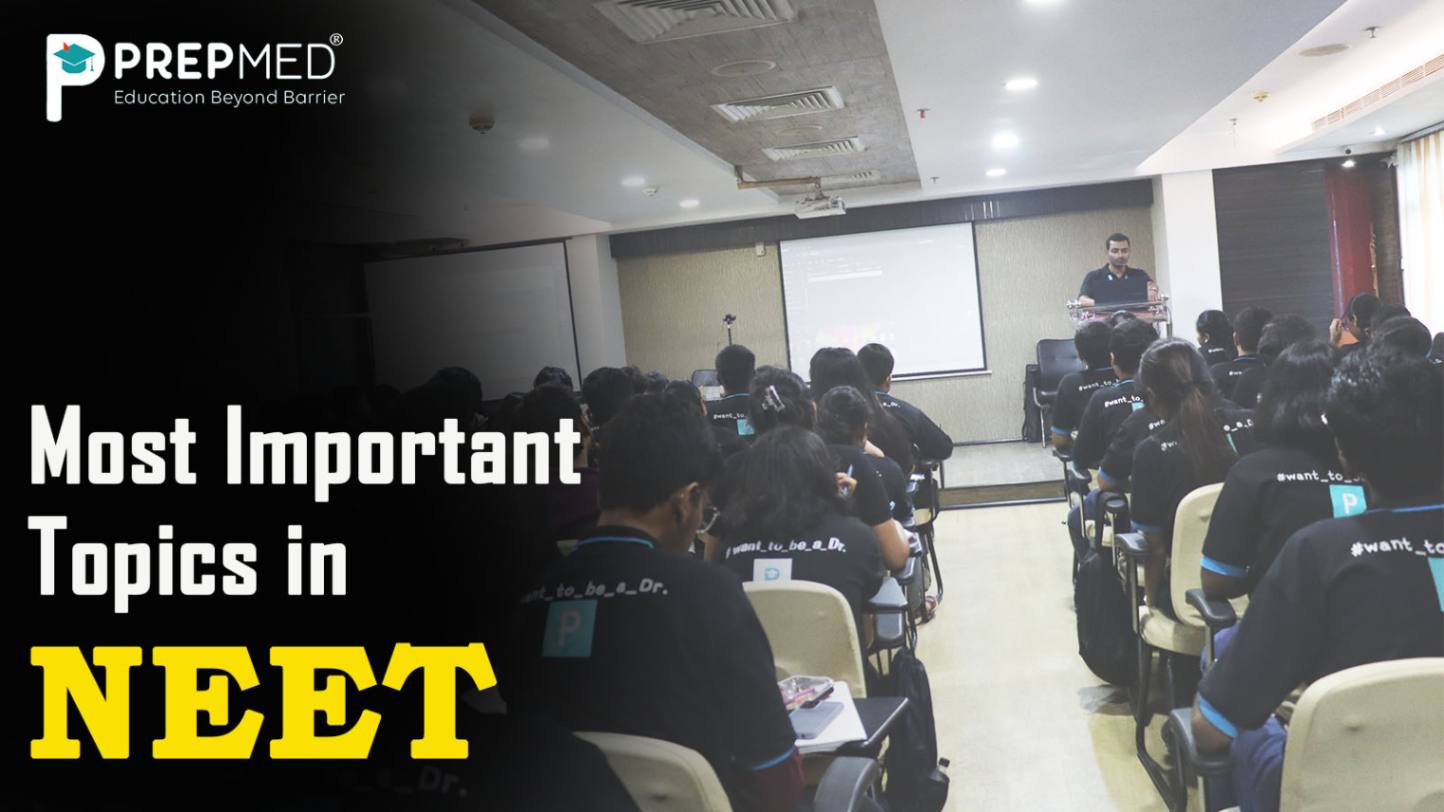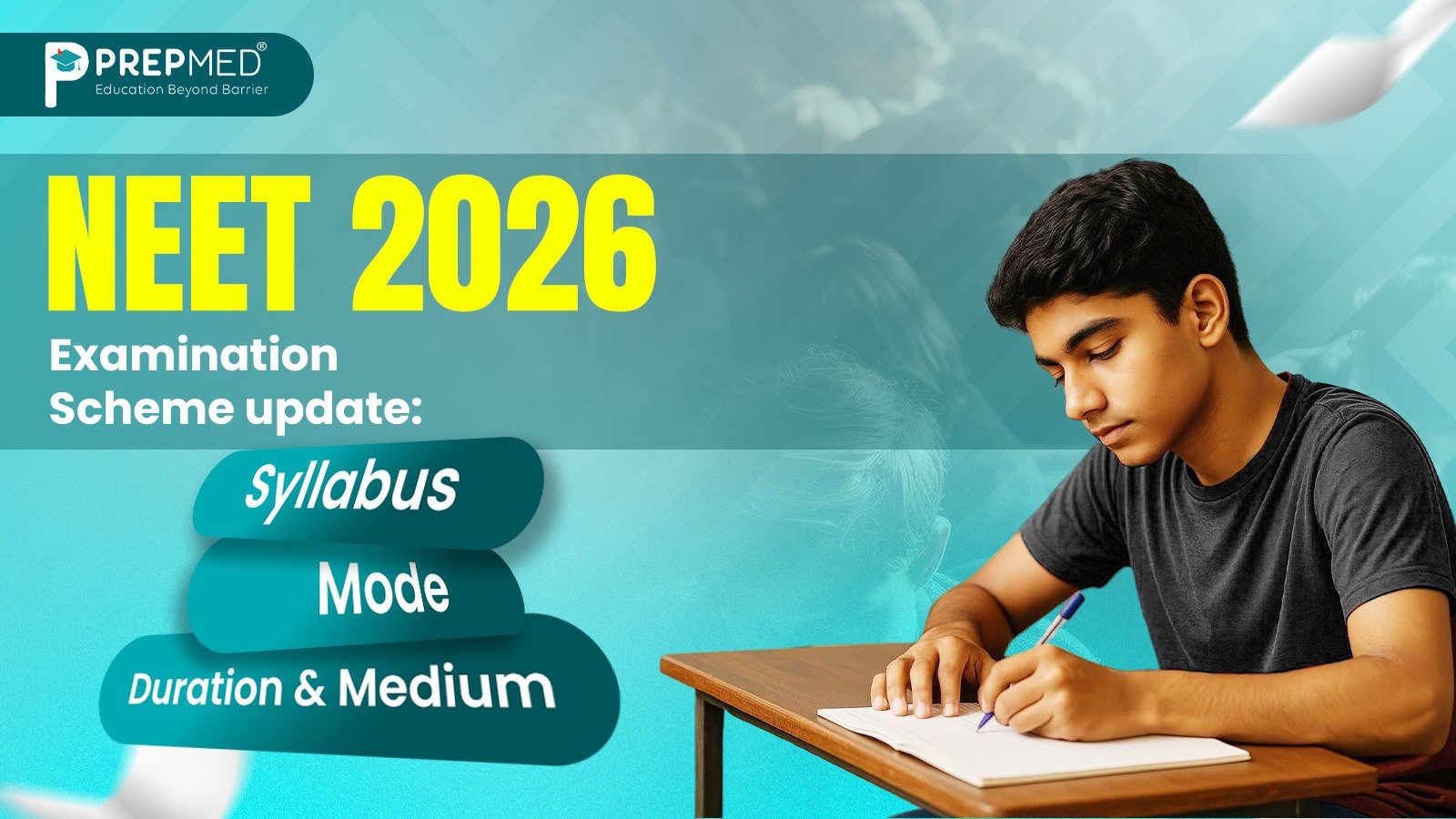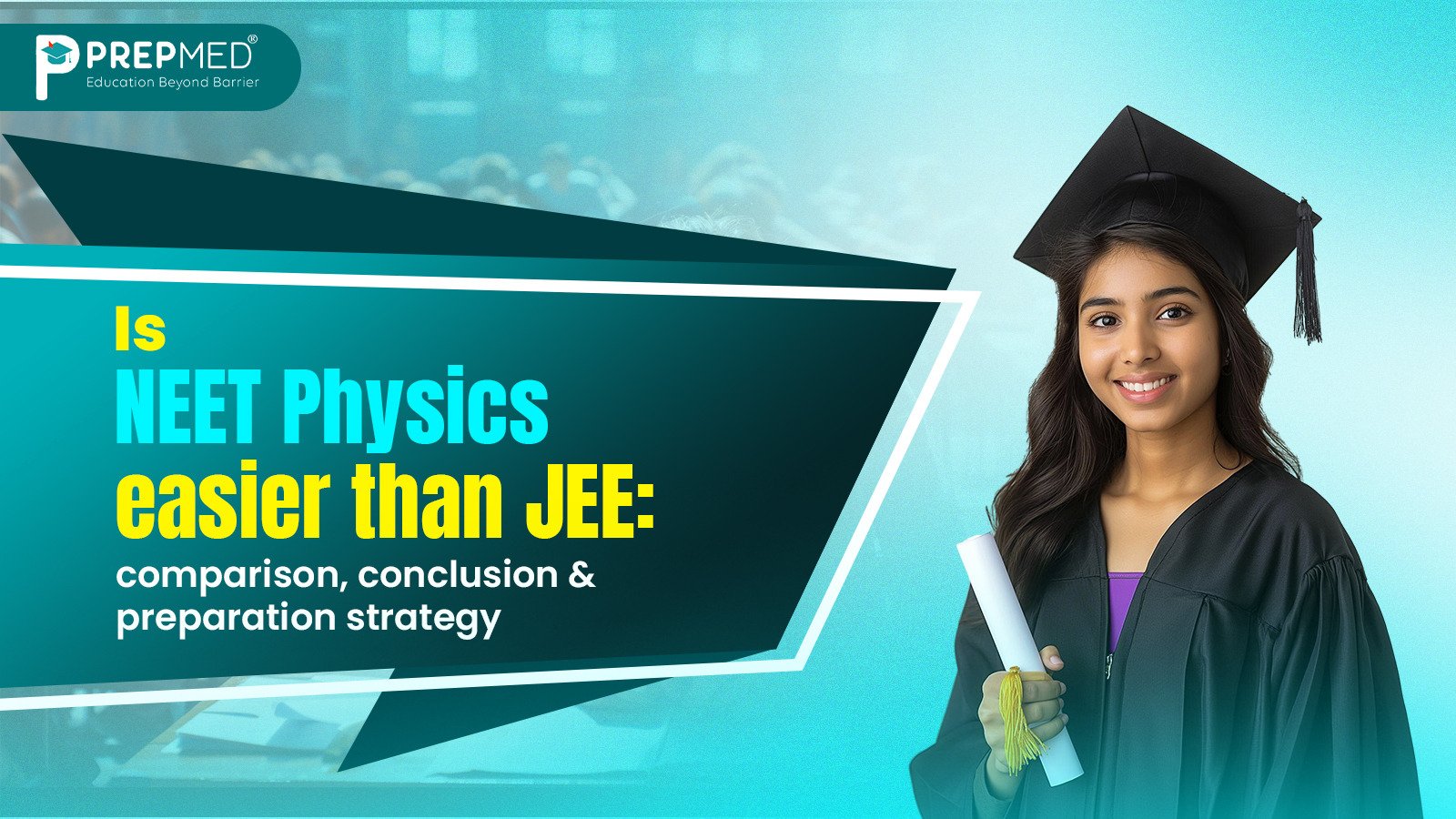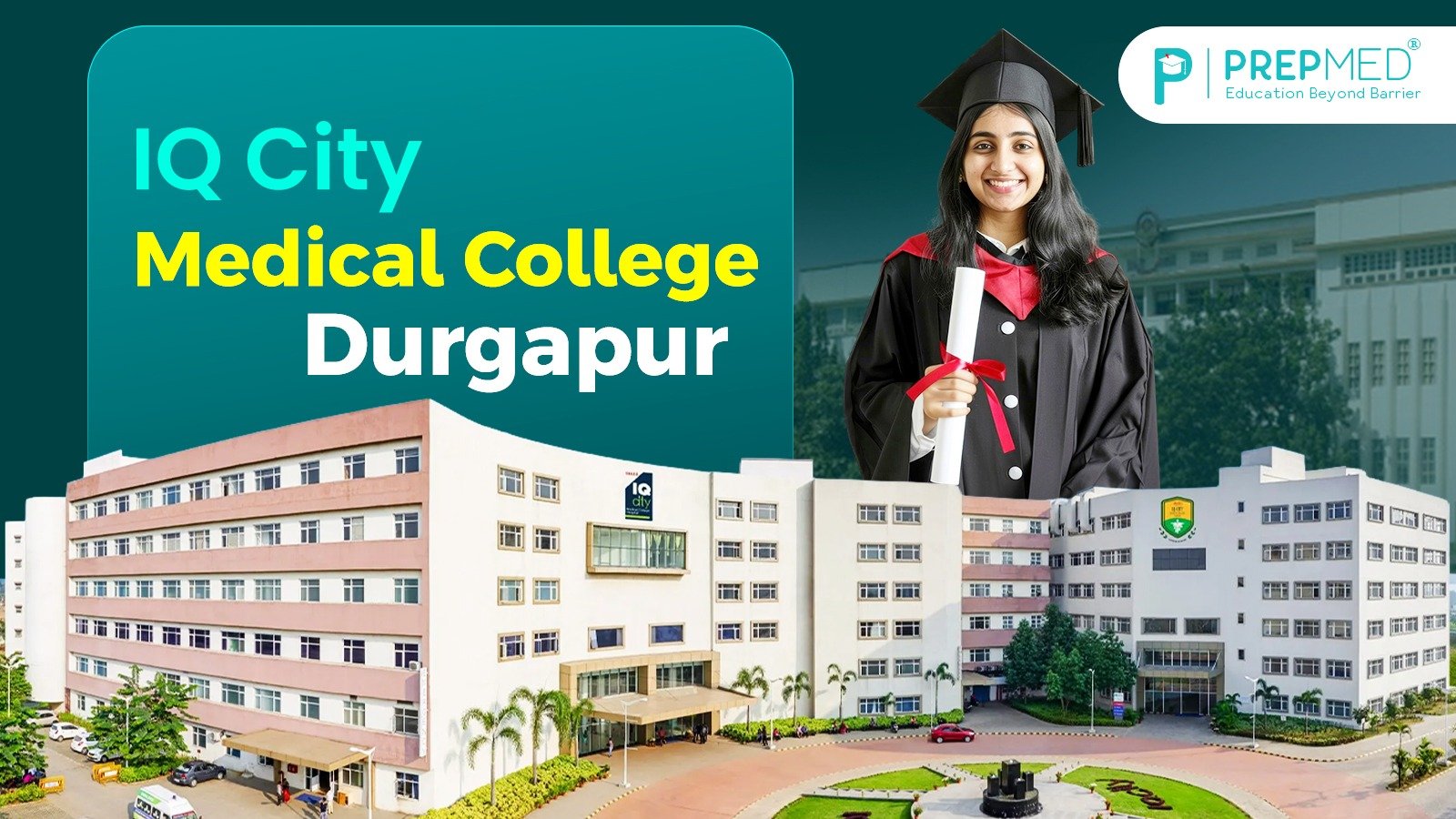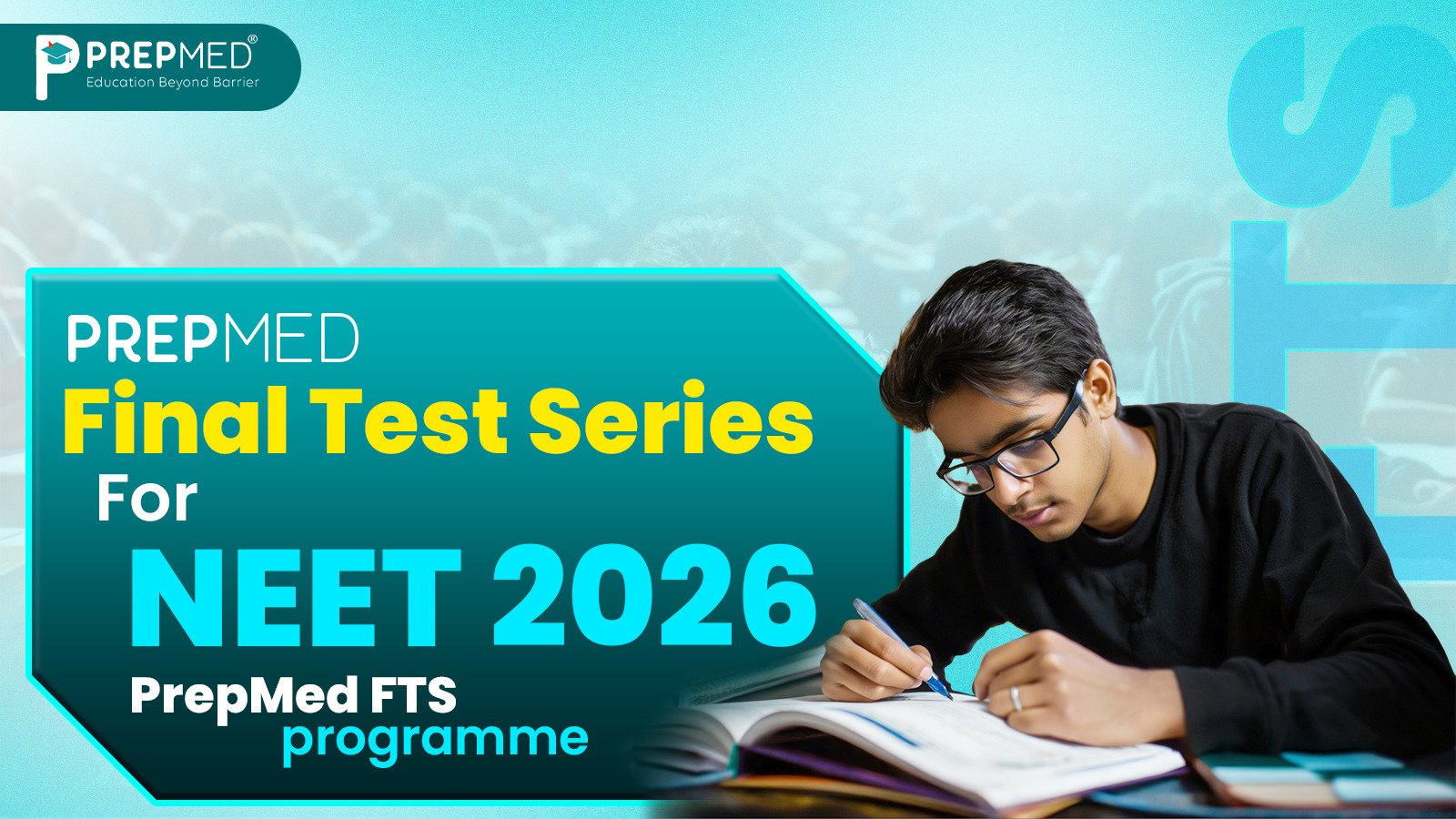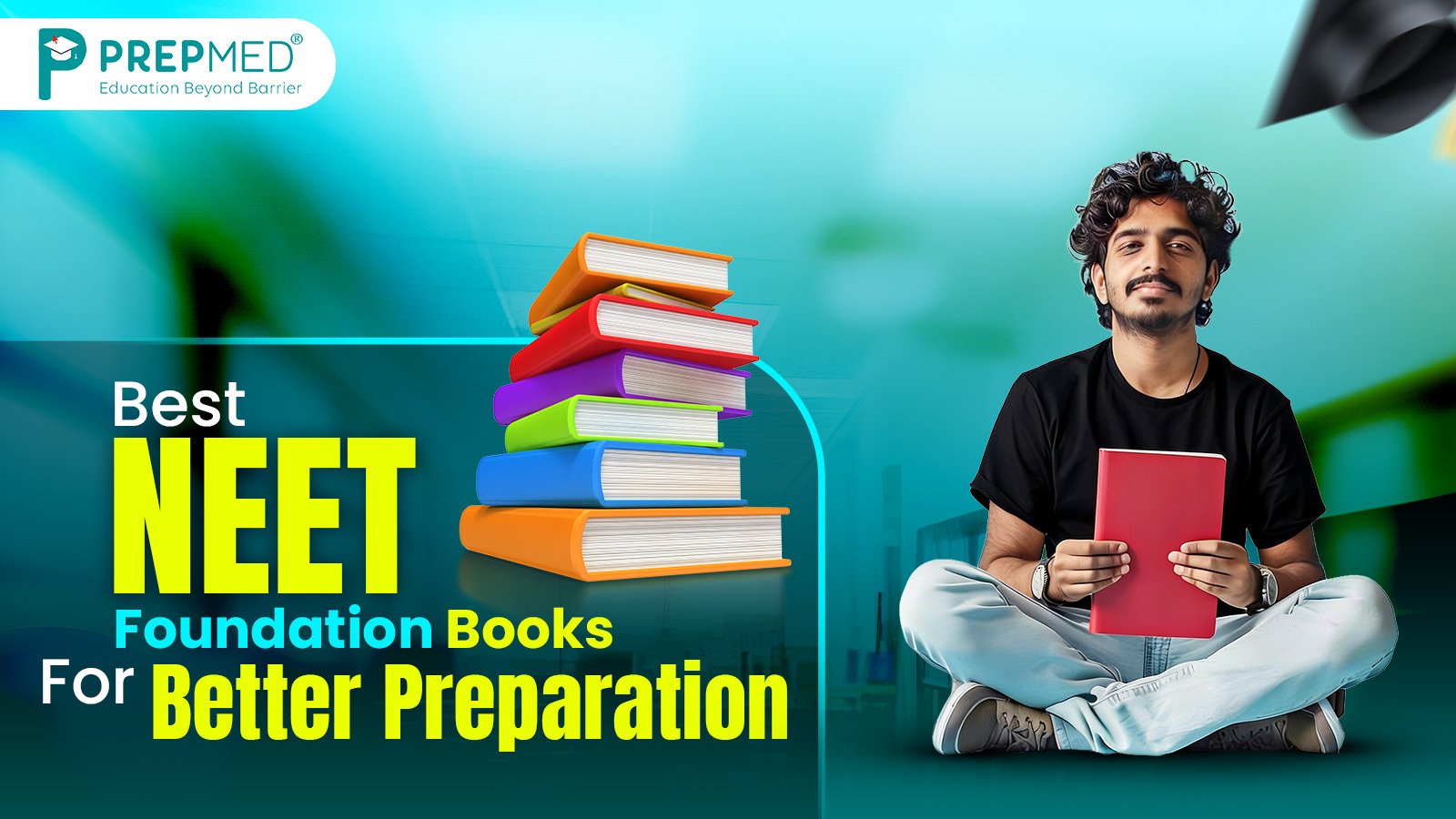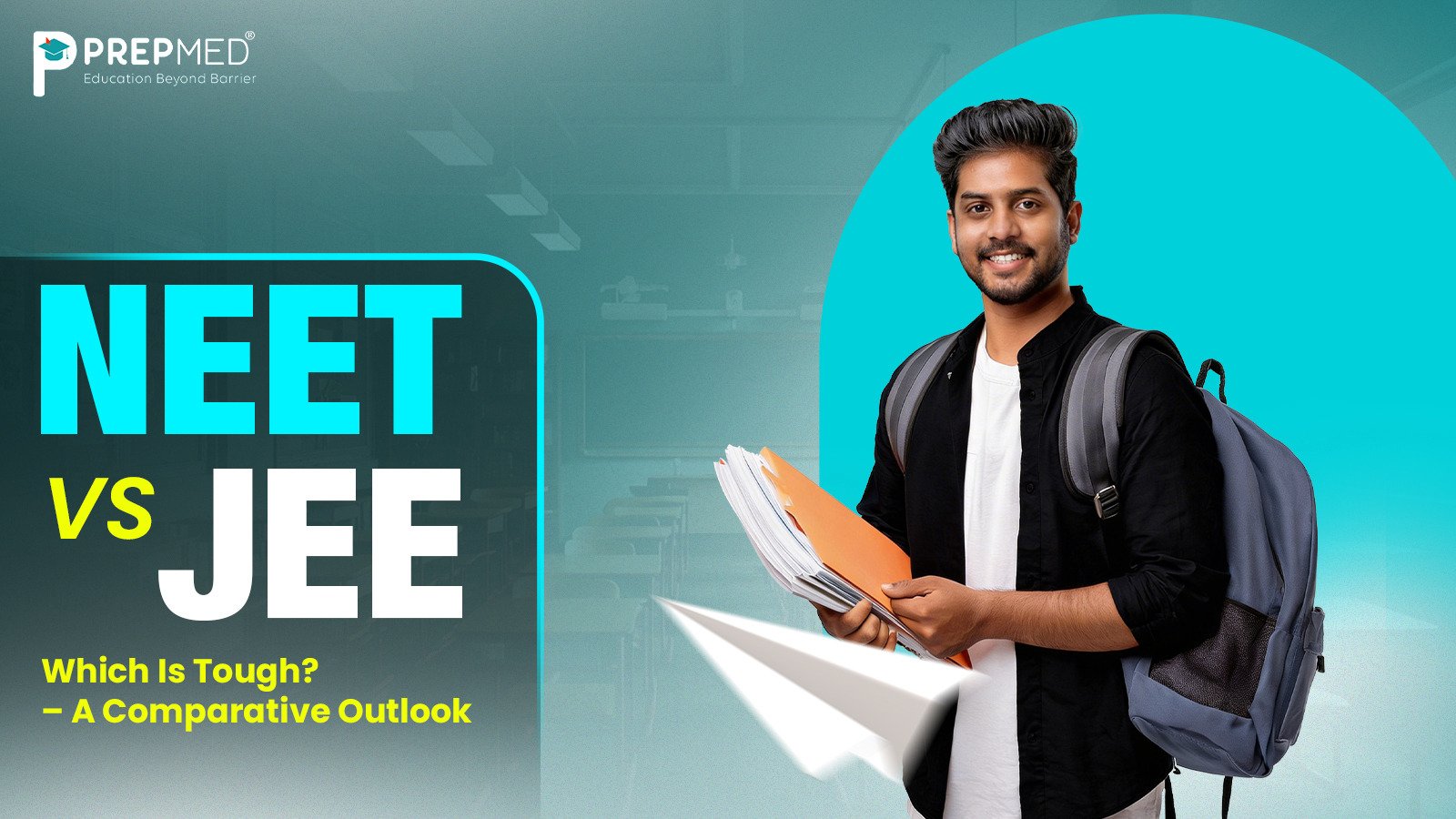September 01, 2024
Most Important Topics in NEET
One of India's toughest medical entrance exams is NEET, which encompasses a broad syllabus. PrepMed experts have identified key topics crucial for NEET 2025 preparation. To succeed, students should focus on these key topics across the three subjects and implement a well-rounded study plan for optimal performance.
Human physiology:
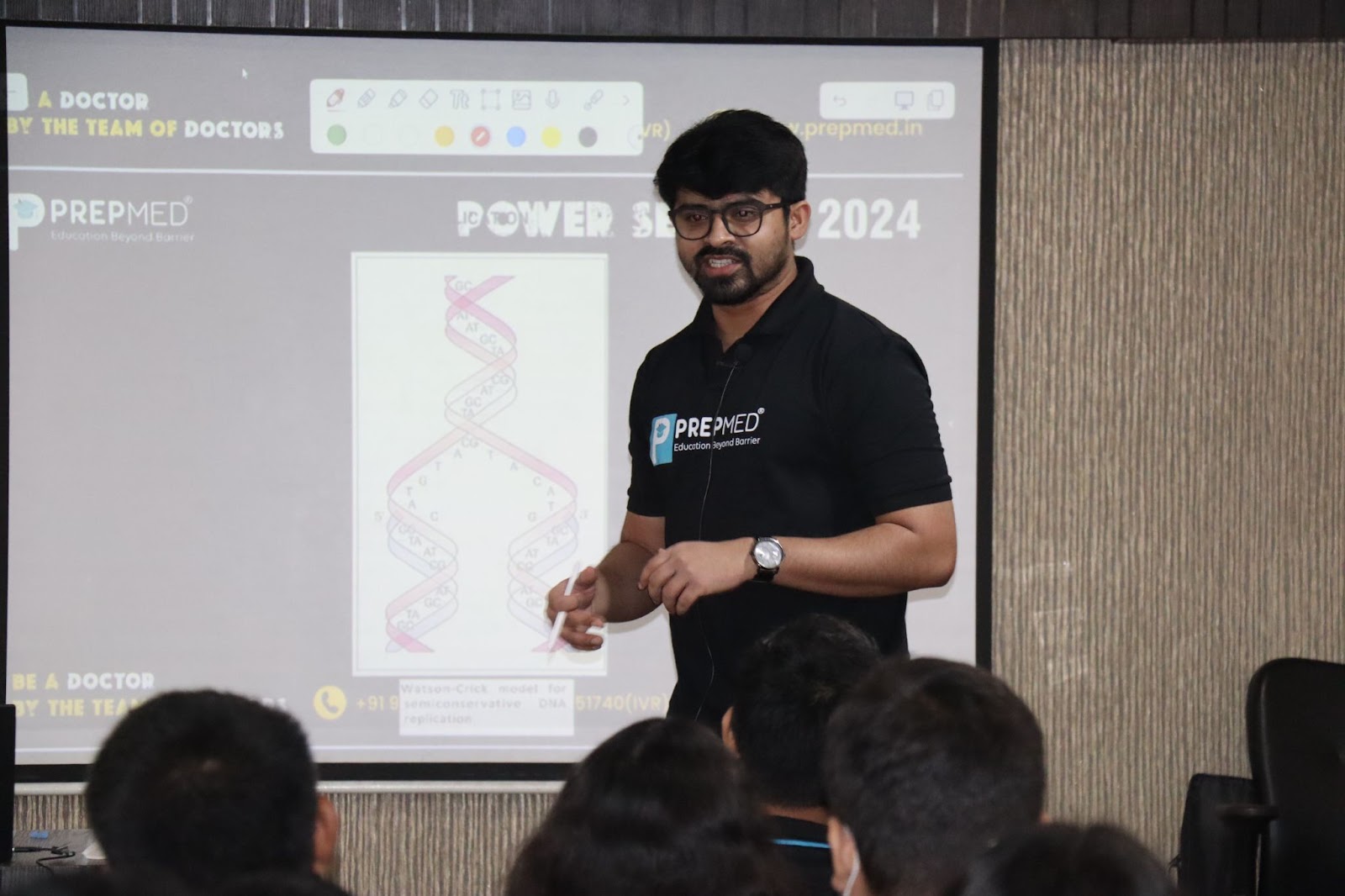
Biology, with its two core branches - Zoology and Botany, forms the backbone of NEET preparation.
- Understanding the functions, structures, and key features of each human body system is crucial for tackling Zoology questions effectively.
- Teachers of PrepMed suggest that the nervous system, digestive system, respiratory system, endocrine system, circulatory system, and excretory system are essential to focus.
- Using diagrams, drawing, and practicing them can enhance a student's memorization. Connecting different physiological processes can further strengthen their long-term retention of information.
- Analyzing past question papers to identify patterns, examiner focus, and the weightage of specific chapters or topics is crucial for thorough preparation and achieving outstanding performance.
Genetics:
Genetics plays a crucial role in biology, serving as the foundation for understanding human life and the diversity within ecosystems.
- For NEET students, mastering Mendelian Genetics, Genetic Disorders, the Molecular Basis of Inheritance, and Evolutionary Biology is essential.
- To grasp these concepts effectively, students can create flowcharts that outline genetic processes and use visual aids to reinforce their understanding.
- Practicing Punnett squares and exploring significant historical experiments in genetics and evolution can also help in achieving higher scores on the NEET exam.
Organic chemistry:
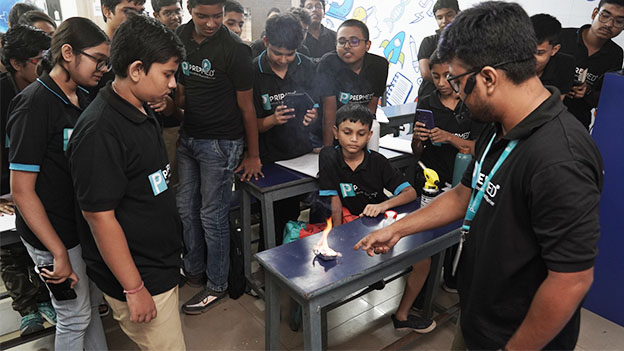
Organic chemistry is a key component of the NEET exam with a significant weightage. For a clear understanding, NEET aspirants should grasp the reactions, formulas, properties, and mechanisms of various organic compounds.
- Understanding fundamental concepts like bond formation, hybridization, and isomerism is essential.
- Aromatic compounds, hydrocarbons, and carbonyl compounds are essential subtopics of organic chemistry.
- Students can enhance their skills by practicing reaction mechanisms using flowcharts and memorizing functional groups and their reactions. Solving challenging problems will reinforce their knowledge and boost their problem-solving abilities.
Mechanics:
Mechanics is a core topic in physics that lays the groundwork for understanding more complex concepts. NEET candidates often face questions from high-weightage topics within mechanics, so a strong grasp of the basics and effective problem-solving skills are crucial.
- Key areas include laws of motion, particle and rotational motion, gravitation, kinematics, and concepts like work, energy, and power.
- Rather than just memorizing formulas, students should focus on understanding these concepts deeply. This approach will help them tackle any physics problem by breaking it down into smaller, more manageable parts.
- Regular practice with numerical problems and theorems is essential for developing proficiency. Additionally, using diagrams to visualize motions and forces can be very helpful for comprehension and solving problems.
Electrodynamics & Electrostatics:
Electrodynamics and Electrostatics are key areas for NEET Physics, covering a significant portion of the syllabus. Understanding how electric charges behave and how circuits function is crucial. To excel, students should practice problems involving various components and grasp the fundamental principles and their applications.
- A solid conceptual understanding is crucial for tackling numerical problems effectively. Topics like current, electricity, electrostatics, magnetic effects, and alternating current form the foundation of Physics.
- Mastering both numerical and theoretical aspects will boost student’s proficiency, helping them achieve higher scores and better ranks.
Thereby, dedication and a strategic approach to studying are essential for reaching the goal of becoming a medical professional. The extensive syllabus plays a crucial role in determining whether students will gain admission to MBBS and BDS programs at various government medical colleges in India.
Frequently Asked Questions (FAQ’s)
1. What are the most important topics to focus on for NEET 2025?
For NEET 2025, it's crucial to focus on key topics such as Human Physiology, Genetics, Organic Chemistry, Mechanics, and Electrodynamics & Electrostatics. These areas cover a significant portion of the syllabus and are essential for achieving a high score.
2. How can I effectively study Human Physiology for NEET?
To master Human Physiology, concentrate on understanding the functions and structures of body systems like the nervous, digestive, and circulatory systems. Using diagrams, practicing drawing them, and connecting physiological processes can enhance your memorization and retention.
3. What should I know about Genetics for NEET preparation?
For Genetics, focus on Mendelian Genetics, Genetic Disorders, Molecular Basis of Inheritance, and Evolutionary Biology. Creating flowcharts, practicing Punnett squares, and studying significant genetic experiments will help reinforce these concepts.
4. How important is Organic Chemistry in NEET, and how should I prepare for it?
Organic Chemistry is vital for NEET and involves understanding reactions, formulas, and mechanisms of compounds. Students should grasp fundamental concepts like bond formation and practice reaction mechanisms using flowcharts to improve problem-solving skills.
5. What topics in Physics should I prioritize for NEET?
In Physics, prioritize Mechanics, Electrodynamics, and Electrostatics. Focus on understanding laws of motion, gravitation, current, and electricity. Regular practice with numerical problems and using diagrams to visualize concepts will aid in mastering these topics.
For more details on PrepMed and to find the nearest coaching center, visit PrepMed’s official website
Follow Us - on Facebook /Instagram/ YouTube
